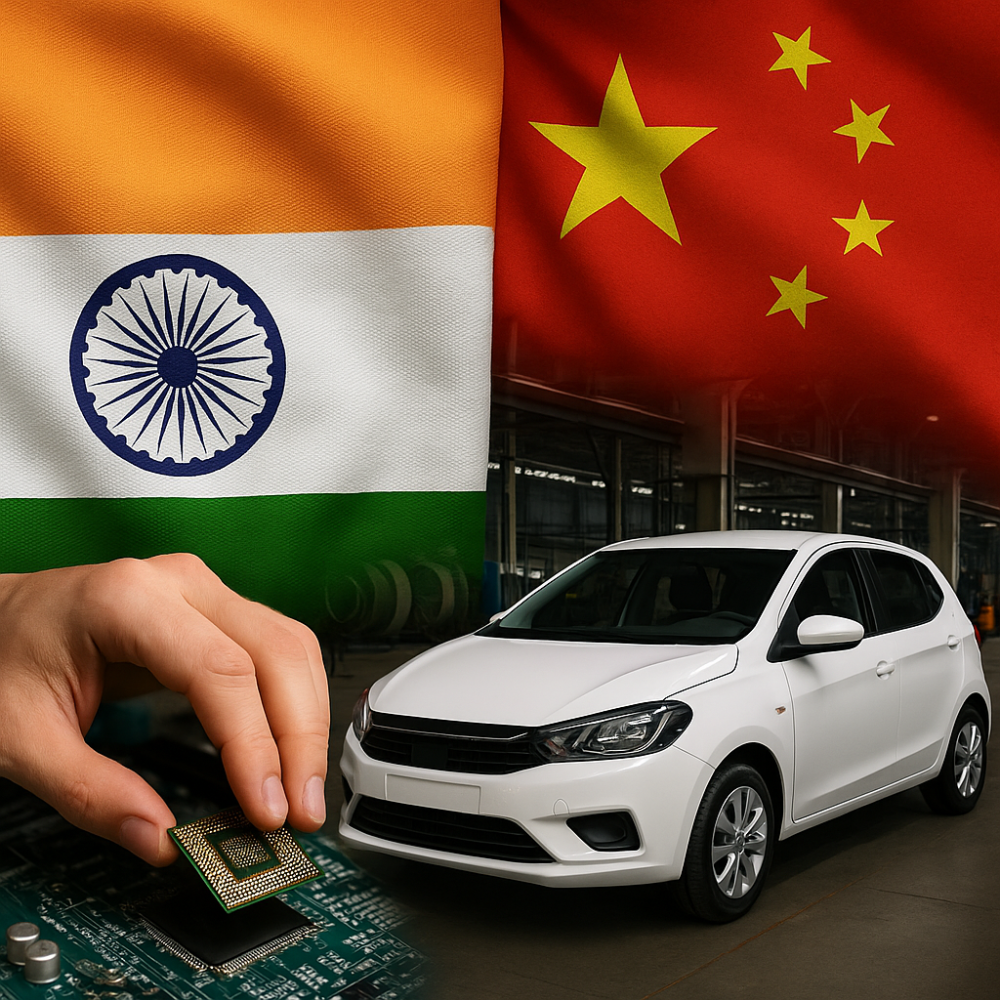
New Delhi | 31 May 2025
India’s automobile industry, a critical pillar of the country's manufacturing sector, is facing fresh uncertainty following a major decision by China to tighten export regulations on key industrial components. According to a report by Aaj Tak, China has halted the export of essential rare earth materials and advanced semiconductors — components heavily relied upon by Indian automakers and EV manufacturers.
This sudden move by Beijing has sent shockwaves across India’s auto sector, with many experts warning that the future of domestic vehicle production, especially electric vehicles (EVs), could be significantly impacted.
China, which accounts for over 80% of the global supply of certain rare earth elements and advanced microchips, has invoked new national security guidelines to control the export of:
Rare earth metals used in EV batteries and electric motors
Semiconductor components crucial for vehicle electronics
Specialized manufacturing equipment used in high-tech auto production
Industry insiders confirm that Indian firms had not been given prior warning, and shipments that were already in the pipeline are now delayed indefinitely.
India has been striving to reduce its dependency on Chinese imports, especially in the wake of recent border tensions and the push for ‘Aatmanirbhar Bharat’ (self-reliant India). However, the automobile sector continues to rely on China for more than 60% of its EV battery supplies and over 50% of semiconductor parts, according to data from the Society of Indian Automobile Manufacturers (SIAM).
Major Indian automobile companies have expressed concern over supply disruptions, rising production costs, and project delays. A senior executive from a leading Indian EV company said:
“This restriction could cripple our production targets for the next two quarters. Alternate sourcing is not only expensive but will take time to stabilise.”
Automotive experts are also warning of a ripple effect on jobs, export commitments, and investments in the EV ecosystem.
In response, the Indian government is reportedly exploring diplomatic and trade channels to de-escalate the situation. There is also a renewed urgency to:
Boost local production of semiconductors under India’s $10 billion chip manufacturing initiative
Accelerate joint ventures with non-Chinese countries such as Taiwan, South Korea, and the US
Enhance domestic capabilities in rare earth refining and battery technology
The Centre is expected to call an emergency meeting with key stakeholders from the Ministry of Commerce, Ministry of Heavy Industries, and the auto industry to assess the full impact and formulate a mitigation strategy.
This latest trade maneuver by China underscores the fragility of global supply chains and reinforces the strategic necessity for India to strengthen its domestic manufacturing base. The coming weeks will be crucial for policymakers and industry leaders to navigate this emerging crisis and ensure India’s automotive ambitions remain on track.